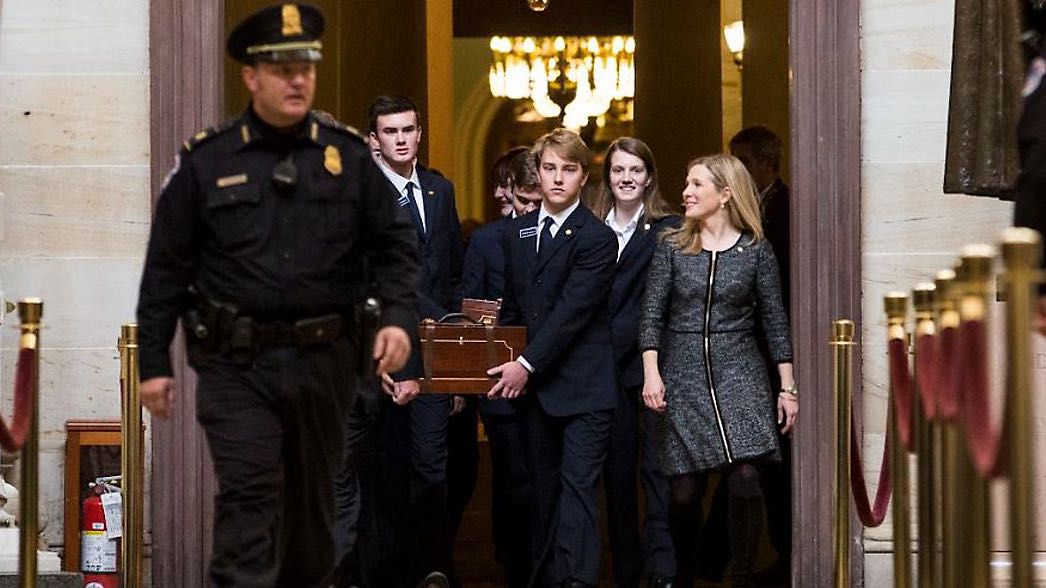Advocates and legal experts say the Supreme Court’s decision on the Trump-era Remain in Mexico immigration policy may lead to the end of Title 42, a policy that allows federal agents to turn away migrants for public health reasons.
Maine’s Immigrant Legal Advocacy Project said removing the Title 42 policy is a logical next step following the end of “Remain in Mexico,” which the Supreme Court against in a 5-4 vote on Thursday. The policy required migrants seeking asylum to remain in Mexico while their cases were handled in the United States.
“Title 42, which like Remain in Mexico, is rooted in racism, xenophobia, and the politicization of human life,” said Lisa Parisio, a policy and outreach attorney at the group based in Lewiston.
A Trump-era immigration policy, Title 42 is under review by a U.S. District Court judge in Louisiana, and no timetable has been given on when a ruling may come.
Meantime, reaction from Maine’s congressional delegation on both policy issues have been mixed. Rep. Jared Golden, a Democrat, and Sen. Susan Collins, a Republican, have previously said they were against ending Title 42 because they say the U.S. was not prepared to handle an influx of migrants.
According to the Pew Research Center, more than 1.8 million people have been required to remain outside the U.S. while their cases were being handled as a result of Title 42. Golden has also argued that in preparing for the potential end of Title 42, U.S. Customs and Border Protection personnel at the country’s northern border are often shorthanded.
"Whether in New Mexico or Maine, the federal government needs a strategy to recruit and retain rural border patrol agents, CBP officers, and ICE agents so that we have the personnel needed to fight illicit drug trafficking, enforce immigration laws, and patrol thousands of miles of border,” Golden said.
According to Steven Yale-Loehr, a law professor at Cornell University, there could be a renewed interest in Golden’s proposal to “address Customs and Border Protection personnel shortages in rural areas ahead of the surge.” While the future of Title 42 is still unclear, DHS has to be prepared for the possibility Title 42 will end at any time.
“Because of the surge of people trying to enter our U.S.-Mexico border, border patrol agents are being pulled from the northern border down south. And so you know, the Department of Homeland Security has a tough job balancing the needs of both the northern and southern border, and more appropriations by Congress would alleviate that problem to a certain extent,” Yale-Loehr said in an interview.
Golden’s legislation on Customs and Border Protection personnel shortages has the support of law enforcement officials.
"There is a crisis now at the border, and [in March] we apprehended 200,000 illegal immigrants trying to enter our country. Against this backdrop, Border Patrol for the first time in 5 years will not meet its hiring targets. The result is that we do not have enough manpower to handle the crisis and are robbing Peter to pay Paul but redeploying agents from other sectors to fill the gaps. This includes northern border agents in Maine where we are already thinly staffed and in Texas. Border patrol needs a plan and they need it now," Brandon Judd, president at the National Border Patrol Council, said in a statement. Judd is also a former Maine border patrol agent.
Yale-Loehr, however, said that there are no immediate concerns that Thursday’s Supreme Court decision on Remain in Mexico will have an impact on immigration courts. According to research from earlier this year, the immigration court backlog now tops 1.6 million cases, up from 1.1 million before the pandemic.
“This does not affect our immigration court backlog. These people were already in immigration court proceedings. It was just that the Remain in Mexico policy required them to wait in Mexico for their immigration court date. So, this is not going to exacerbate our backlog and immigration courts and we need to deal with that,” Yale-Loehr said.






